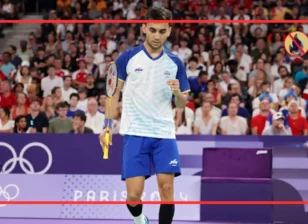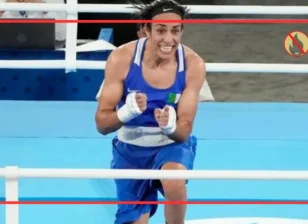Is Human Trafficking a Problem in France?
France’s city, Paris, is known for its charming streets that frequently conjure up romantic and artistic ideas. The hidden threat of human trafficking, however, lurks under the lively nation’s surface and has long afflicted civilizations everywhere. France, a nation of expansive countryside and busy cities, is not exempt from the effects of the current global financial crisis. Discovering the scope of human trafficking in France requires a study of historical context, current data, government measures, the COVID-19 pandemic’s effects, and the involvement of numerous stakeholders, including NGOs, in preventing this horrible crime.
Historical Context
The transatlantic slave trade was one form of exploitation in France’s long history that had a significant effect on both its colonies and society. An important turning point in the nation’s dedication to human rights came with the abolition of slavery in the 19th century. In spite of legal and societal improvements, sex and labour exploitation of human beings continues to occur in modern-day France, where the effects of previous injustices can still be felt.
Trafficking Data: Unveiling the Gravity of the Issue
Government reports indicate that the level of human trafficking in France is concerning. The nation is a transit and destination place for trafficking victims, including men, women, and children, according to data. Due to the crime’s covert nature, it is difficult to determine the precise number of victims, although it is clear that both domestic and international trafficking networks are engaged in the country.
Government Efforts: A Comprehensive Approach
The French government has implemented measures to combat human trafficking, including specialised law enforcement units, global partnerships, and anti-trafficking education for government workers. However, the COVID-19 pandemic has posed significant challenges to these efforts, as public health concerns have shifted focus.
Impact of the COVID-19 Pandemic: Unforeseen Challenges
Unexpected difficulties arose in France’s fight against human trafficking as a result of the COVID-19 pandemic. Due to the ensuing lockdowns and limitations, it was harder for victims to be identified, which decreased the number of incidents that were recorded. The pandemic’s economic effects also worsened vulnerabilities, putting many people at greater risk of exploitation, particularly in the area of forced labour.
Victim Identification and Protection: A Complex Task
In France, locating and defending human trafficking victims is still a challenging undertaking. Although its implementation has encountered difficulties, the National Referral Mechanism (NRM) provides a crucial foundation for the identification and support of victims. To guarantee that victims receive full help, such as shelter, legal assistance, and psychological treatment, the procedure frequently calls for the participation of numerous stakeholders, including NGOs.
NGO Involvement: A Crucial Pillar in the Fight Against Trafficking
NGOs play a crucial role in combating human trafficking, providing immediate support to victims despite government financing restrictions. They also offer valuable insights and suggestions to enhance the effectiveness of anti-trafficking policies.
Prosecution Efforts and Penalties: Deterrence Measures
The French government’s policy focuses on prosecuting traffickers, despite severe fines and difficulties in investigations and victim testimonies. New legal procedures aim to improve witness and victim safety, enabling more efficient criminal prosecution processes.
Victim Assistance and Rehabilitation: A Multifaceted Approach
Rehabilitating and reintegrating victims back into society calls for a diverse technique. In order to give victims the tools they need to reconstruct their lives, comprehensive victim assistance programmes that include educational opportunities, counselling, and vocational training are essential. Since their specialised knowledge aids in the victims’ comprehensive rehabilitation, NGOs’ participation in victim support is essential.
Funding Challenges and Recommendations: Sustaining Anti-Trafficking Initiatives
The French government provides funds to NGOs that work with victims, but ongoing resource allocation issues and administrative restrictions make it difficult to conduct anti-trafficking programmes in a long-term, effective manner. NGOs have constantly pushed for more money and simpler procedures to make sure that complete victim support is still offered and that preventative efforts are effectively put into action.
Conclusion
The government, law enforcement, NGOs, and the general public must work together to combat human trafficking in France. It necessitates a multidimensional strategy that includes aggressive legal action, victim-centred aid programmes, and global partnerships. Despite obstacles, the resolve to confront this violation of human rights is unwavering, signifying a shared commitment to uphold the dignity and welfare of every person living inside the borders of the country. A symbol of hope, France’s ongoing efforts to eradicate human trafficking show the way to a society free from the constraints of exploitation and injustice.





